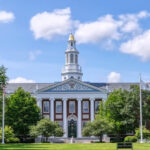Very Human Humanities
A Humanities curriculum should promote and foster human rights across the globe, according to three professors who convened at the Modern Language Association conference to discuss “The Future of the Humanities in a Fragmented World.”
“The persistence and regularity of the [future of the Humanities] does not diminish in anyway its urgency,” Toni Morrison [pictured] said, who was joined on the panel by Gayatri Spivak of Columbia University and Ngahuia Te Awekotuku of the University of Waikato in New Zealand. Spivak added later, “The future of the humanities is dire.”
The discussion stressed the role of the humanities in initiating change in what the panelists see as a troubled present. College and university campuses are ideal locations for such motives because they allow free speech, according Morrison. Morrison did note, commenting on groups like Students for Academic Freedom, that “there are forces prepared to shut us down.”
The analysis and debate inherent in Humanities study should help students to understand “the field of rights [and] global figurations of culture and power,” according to Morrison. And, as a result, students of the liberal arts can “imagine the promise of a more humane society.”
Morrison embraced relativism and scorned the “preeminence of Western culture and economy.” “Embracing a fixed notion of collective good may not serve indigenous peoples and minorities,” she said. In that scenario, “a humanitarian crisis can become an excuse for militarism.” Morrison also attacked globalism, comparing it to Manifest Destiny, and said that the global functions of the current state of democracy are “royal.”
Spivak criticized American foreign policy directly. “The U.S. wants to make the world over in its own image.” Spivak is a postcolonial theorist who wrote an introduction for and translated deconstructionist Jacques Derrida’s On Grammatology. The Economist described Derrida’s legacy in its October 21 obituary:
Although by the early 1980s French academics had largely tired of trying to make sense of him, America’s teachers of literature increasingly embraced Mr. Derrida. Armed with an impenetrable new vocabulary, and without having to master any rigorous thought, they could masquerade as social, political and philosophical critics.
Awekotuku encouraged educators to spurn traditional notions of the humanities, to “define notions of humanities on our own terms, not by the Western academy.” Central to the study of the Humanities, according to Awekotuku, are the questions: “Who makes the judgments? Who decides what the meaning is? Which futures do we choose?”
The Modern Language Association met December 27-30 in Philadelphia for its 120th annual conference. The MLA consists of graduate students and professors of languages and literatures.
Larry Scholer is a staff writer at Accuracy in Academia.




